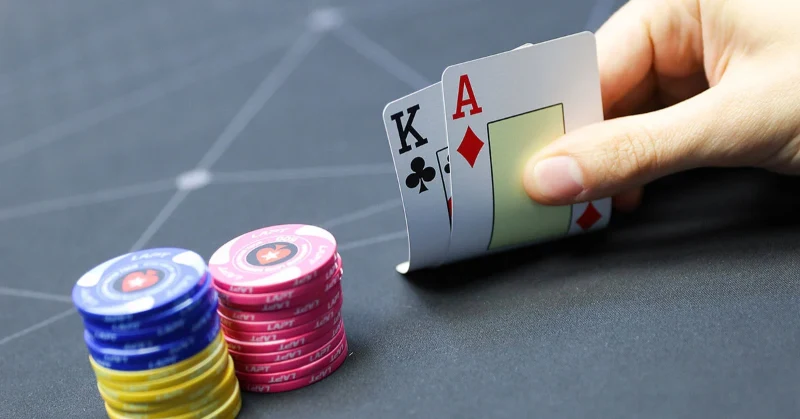Odds and Outs in Poker is a topic that many people learn about. However, most Poker players today are still quite confused about this issue. Let’s join bookmaker Phdream to find specific, easy-to-understand calculations in the article below.

Some information about Odds and Outs in Poker
Currently, Poker is a card game that does not seem to depend only on the element of luck. Still, it is related to the intelligence, tactics, and probability of everyone who registers to play this game. That’s why people in the market today pay a lot of attention to Odds and Outs. Let’s follow the content below to help you better understand what these two terms are in Poker.
For bettors who are interested in the game of Poker for the first time or players who want to understand Odds and Outs, you can refer to a few basic concepts as follows. Specifically:
Outs: This is the basic term in Poker that designates the cards that have not been dealt out in the casino, but the Poker player hopes for those cards to appear to help the player improve the deck they currently own in their hand.
Odds: This term means the ability of the Outs cards you need to improve your deck. Understand and firmly grasp the knowledge of Odds and Outs in Poker
Illustration

To help you easily understand the Outs and Odds, let’s follow the following example. The first is about Out:
For example, you are holding 3 diamonds and 4 hearts, and if you divide it further with 5 diamonds, Q hearts, and K diamonds, you do not have a strong straight at this time. So you are looking for a 6 of diamonds or a king of hearts to create a straight hand. In this case, the player will have Outs of 8 because there are 4 cards worth 6 and 4 cards worth K.
For Odds: At this time, the Odd will be the ratio of Outs cards that will appear, such as 1:10 or depending on the player’s Outs.
Understand some simple calculations
After understanding the Odds and Outs with the above information, players must grasp some ways to calculate Odds and Outs in Poker that can increase effective probability prediction when playing to bring success. more chances to win. Below are some simple ways to calculate Odds for players based on Outs that you hope you can refer to. Specifically:
First, about how to calculate Odds, going back to the example of Outs above, Odds are calculated on Outs because Odds are the possibility of Outs appearing. The above number is the Outs card that the player needs, which is 8 plus the 5 cards the player has been dealt; there will be 39 cards left. The formula for calculating Odds is as follows:
Odds = Remaining cards: Outs = 39:8 approximately 5:1
In the long run, for every six times you encounter an open-ended straight draw on the flop, there is only one time the player can improve his hand as desired.
A few important notes about Odds and Outs

When playing Poker, you need to remember that luck does not do everything, but players need to understand the probability of winning or losing and improve their cards. Some notes below will be essential for poker players. Specifically:
An Outs that are desired can be strong or weak depending on its position in the deck and the structure of your hand.
Odds only let players know the failure rate compared to the success rate of a card drawing action and expect the cards to appear. However, Odds do not guarantee whether you will win or lose.
Always calculate the probability accurately to understand when you will have opportunities.
We have introduced to you extraordinarily complete and detailed information about what Odds and Outs in Poker are and how they are calculated. If you care a lot about Odds and Outs, then the content of the above article is certainly not to be missed. We hope the above information will help you gain more suitable and useful knowledge.

